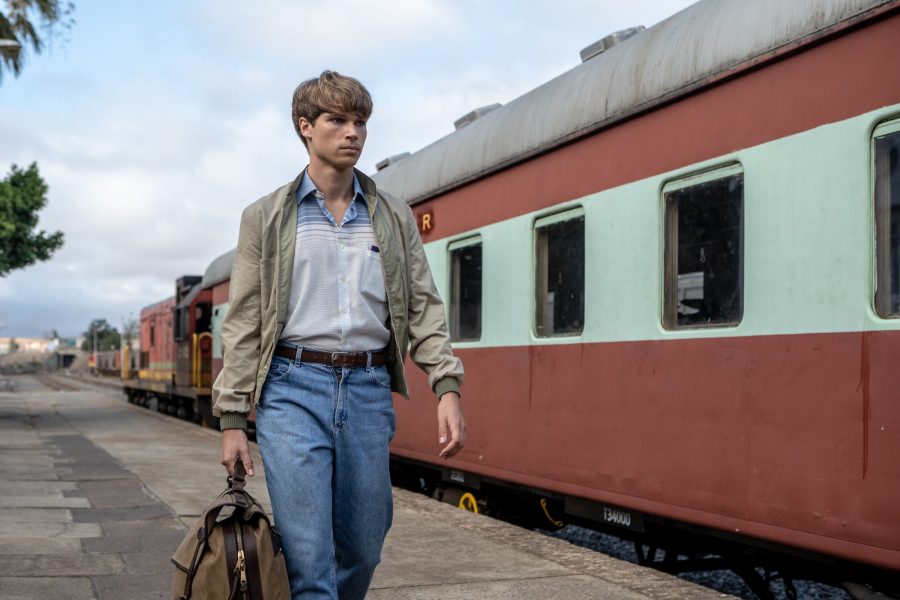Stark text on screen immediately sets the political context for Moffie – placing us firmly in early 80s Apartheid South Africa. At the time, the country was preparing for war with then-neighbouring Angola over the supposed threat of Communism. This information, combined with a staccato string score and the low-key lighting of the opening shots establishes the atmosphere as oppressive and murky – a mood that is to remain for much of the film.
Protagonist Nick’s (Kai Luke Brummer) conscription incites the narrative and the film then follows his intense training programme. The army conditions are brutal – the soldiers’ language assaults as much as their boots – and the scenes of conflict between trainees in the barracks are powered by testosterone and punches. We soon realise they’re not being trained so much as being degraded, dismantled and remoulded. Questioning or disobeying the slightest of orders becomes unthinkable and scenes of soldiers’ punishments are gruelling to watch.
In addition to every other kind of bigotry at play here, the film’s central focus is homophobia, and how torturous it is to live as a gay man at this time, never mind in this military environment. A visceral one-shot flashback takes us to a formative event in Nick’s youth, highlighting the traumatic impact of homophobia and the psychological ramifications it can have. As an adult, he is still living in a shell, hiding beneath protective layers of silence and self-denial. However, an unexpected tender exchange with a fellow trainee alters Nick’s path and the possibility of a gentler future presents itself.
Ultimately the film’s climax affirms the overarching sense of suppression, though. The intimate quasi-love plot ends in a suitably muted fashion and we are left to ponder the sadness and shame of homophobia and its effects. Moffie leaves us with a sense of both sympathy and injustice.
